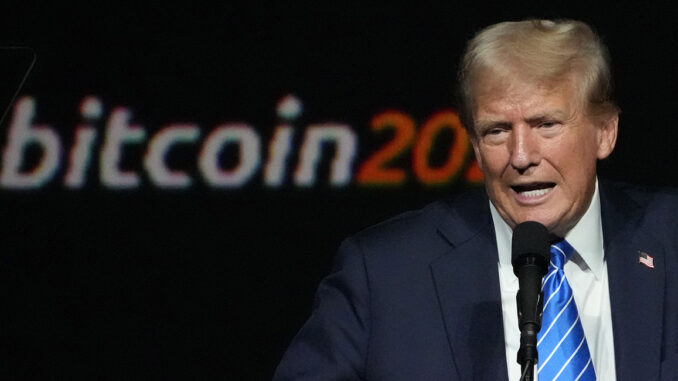
Less than a month into the second Trump administration, we are already seeing action on bold promises to bring clarity, regulatory reform and innovation to the crypto space — cutting burdensome regulations, reversing controversial Biden-era rulemakings and embracing digital assets at the national level. These commitments have resonated with a rapidly growing community eager for change.
On Feb. 4, Congress established a bicameral working group to develop a framework for stablecoin legislation and digital asset market structure.
Even before the inauguration, President Donald Trump made a decisive move by appointing Bo Hines as executive director of the Presidential Council of Advisers for Digital Assets, reinforcing his administration’s intent to position the United States as the global leader in digital financial innovation.
I’ve had the opportunity to engage with Hines extensively, and many North Carolinians know his name — not just from his congressional campaigns but also from his days as an NC State wide receiver. However, his greatest impact may come in the next six months, where Hines has been tasked to shepherd an emerging industry in dire need of clarity. His appointment, made official by Trump’s executive order “Strengthening American Leadership in Digital Financial Technology” on Jan. 23, marks a sweeping shift in U.S. digital asset policy. The order prioritizes regulatory clarity, ensures fair access to banking services, supports lawful, dollar-backed stablecoins and repeals restrictive Biden-era policies.
While many may recall Hines’ time on the football field, it’s a fitting coincidence that he played in the Bitcoin St. Petersburg Bowl in 2014, a nod to Bitcoin’s early influence.
Now, 11 years later, Hines will work closely with White House AI and Crypto Czar and Silicon Valley tycoon David Sacks to develop a federal regulatory framework proposal for digital assets and deliver recommendations to Congress. And these efforts must move swiftly. Per the executive order, the team will review existing regulations, recommend necessary modifications within 60 days and deliver a comprehensive policy report to the president within 180 days. A key initiative includes evaluating the creation of a strategic national digital assets stockpile — a move to strengthen the nation’s leadership in crypto.
Notably, Trump’s executive order also prohibits the federal government from issuing or promoting Central Bank Digital Currencies (CBDCs), ensuring that financial sovereignty and economic liberty remain at the forefront. North Carolina took a leading role in this effort last year, passing the widely bipartisan H.B. 690, overriding Gov. Roy Cooper’s stunning veto and becoming a national model for resisting government-controlled digital currencies.
Hines’ appointment further underscores North Carolina’s dominance in digital asset policy, following the appointment of Paul Atkins as SEC chair, a fellow North Carolinian, and leaders like Patrick McHenry, Ted Budd, Tim Moore and Addison McDowell, who have emerged as national champions for crypto innovation in recent years.
With regulators like Hines and Atkins at the helm, the Trump administration is proving that its commitment to regulatory reform isn’t just rhetoric. This administration will deliver on its promises — not through excessive enforcement, but through clear rules, financial sovereignty and pro-innovation policies that ensure the United States leads in blockchain technology for generations to come. North Carolina has long been at the forefront of digital asset policy, and with Hines helping to shape federal regulation, the state’s leadership in fostering blockchain innovation will only grow stronger.
Dan Spuller is head of industry affairs for the Washington, D.C.-based Blockchain Association.



